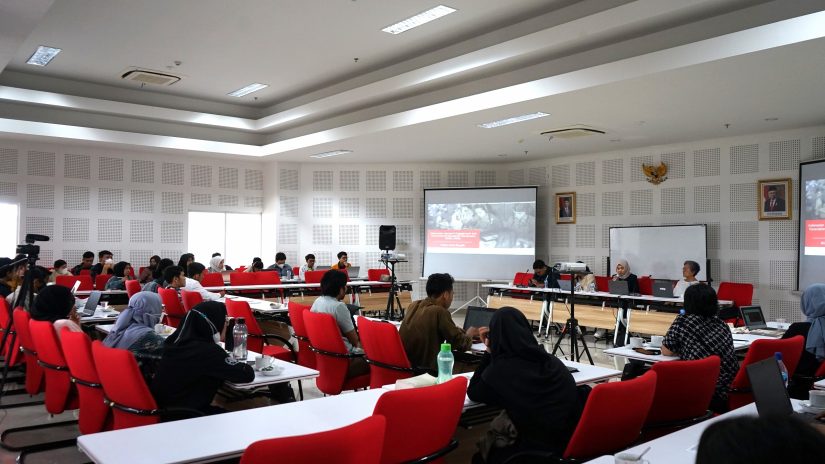
Wednesday (19-10), The Department of History UGM conducted a workshop entitled Transnational Histories of Activism in Southeast Asia and Beyond. With Bristol University and Ruang Arsip dan Sejarah Perempuan (RUAS), speakers from different fields were invited to present a public lecture on transnational activism. The speakers included Brigitta Isabella, Fadiah Nadwa Fikri, Ita F. Nadia, Su Lin Lewis, Widya Fitrianingsih, Wildan Sena Utama, and Yulianti. The event started with a speech from Abdul Wahid, the head of History Department UGM.
The first session focused on women’s role in transnational movements. There was a discussion on their participation in the transnational decolonial movement in the 1940s-1960s. Then, it was followed by the Buddhist women in south and southeast asia in the 1930s-1960s. However, Ita F. Nadia emphasized that the women who were involved mostly came from an elite background. Most of them had pursued Dutch education. On the other hand, the history of the women in the grassroots movements is hard to write due to the lack of sources. The sources used on writing women’s history usually come from private archives. “This is our job, to recall women through unwritten narratives,” explained Ita.
Then, the solidarity transnational movement was discussed. It was moderated by Farabi Fakih. This discussion tried to revise national and global hegemonic narratives. It includes the Afro-Asian and anti-imperialism movement of the third world countries in 1950s-1960s, cultural solidarity and the Afro-Asianism art, as well as shared histories of decolonisation and solidarity. Through all of the discussions, it can be concluded that the subjects mentioned possessed agencies in the midst of changes happening in the global context. “In the global and transnational networks, they were not only acting as an observer, but also agents and creators of those networks,” said Farabi.
At the end of the event, Su Lin Lewis reflected that there were forgotten histories. Those histories were ones that go beyond ideologies and those on marginalization. They were found in the international networks which were based on anticolonialism. “Through a transnational approach, even when we are familiar with one thing, we can still form new understandings,” added Wahid.
Author: Venessa Theonia
